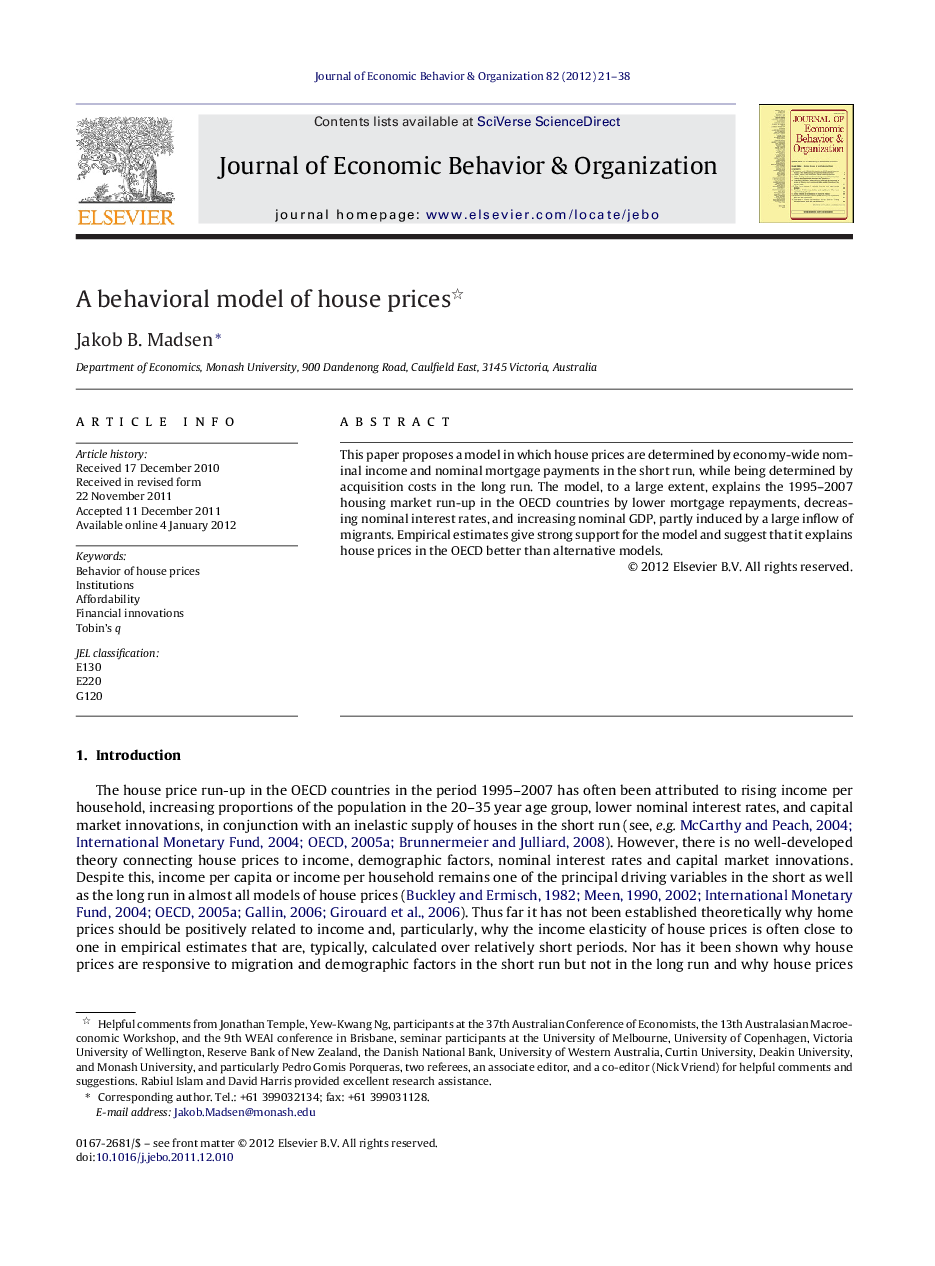| Article ID | Journal | Published Year | Pages | File Type |
|---|---|---|---|---|
| 883848 | Journal of Economic Behavior & Organization | 2012 | 18 Pages |
This paper proposes a model in which house prices are determined by economy-wide nominal income and nominal mortgage payments in the short run, while being determined by acquisition costs in the long run. The model, to a large extent, explains the 1995–2007 housing market run-up in the OECD countries by lower mortgage repayments, decreasing nominal interest rates, and increasing nominal GDP, partly induced by a large inflow of migrants. Empirical estimates give strong support for the model and suggest that it explains house prices in the OECD better than alternative models.
► Derives a behavioral model of house prices showing that house prices driven by economy-wide nominal income, nominal lending rates and mortgage repayment. ► The estimation results are consistent with the prediction of the model. ► The model explains better house prices in the OECD countries than alternative models.
